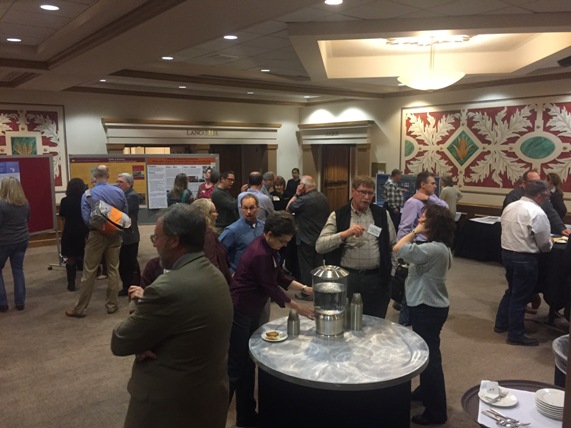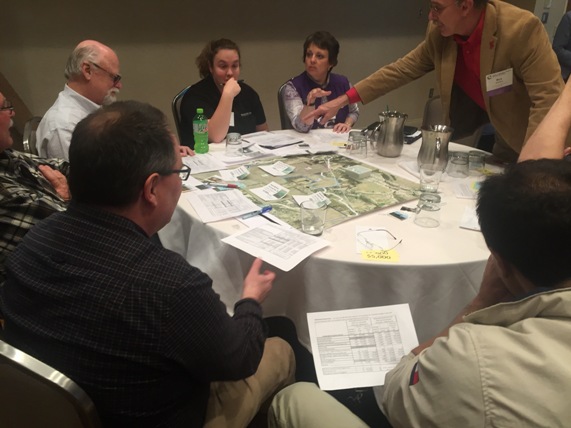Sharing resources and information and addressing critical issues are key components of the North Central Region Water Network (Network). With participation from the Cooperative Extension programs within the 12 land-grant Universities in the North Central Region, an Advisory Council, and key federal, state, and local partners, the Network focuses on increasing the capacity of educators and researchers in each state to address water issues that are regional in nature. Issues being addressed include water availability and allocation, hypoxic zones, harmful algal blooms, drainage management, invasive species and nutrient and manure management.
Additionally, as part of the land-grant system, the Network works with water users across the states to expand their understanding of how water moves and has impacts on agriculture, industry, communities, public health, ecosystem processes and recreation. In addition to synthesizing across knowledge areas, the Network also supports cross-scale integration of water research and educational programming.

Rebecca Power, North Central Region Water Program Director from University of Wisconsin-Extension said, “In evaluating the first few years of the Network, it is clear that participating states are benefitting. New educators and specialists say they have a much bigger network and knowledge pool to draw from, and that innovations in one state are more readily available for replication in other states.” She continued, “Our educators and specialists have really stepped up. We've got new teaching materials, new needs assessments and program inventories, new training and new teams that can be accessed by multiple states. Educators and specialists say they have enhanced their programming based on learning from other states.”
Since the Network formed in 2013, new science-based curriculum and outreach/education materials have been made available for educators across the North Central Region; training and professional development programs for land-grant researchers, educators, and partners have been developed; state programs across the region have been strengthened; innovations in one state have become models that are more readily available for replication in other states; and gaps in research and extension programming have been identified.

Through a stronger multistate collaboration among researchers, specialists and extension educators, the Network is striving to increase its presence on multi-state water-related issues and help prepare the next generation of leaders, citizens and decision makers to be effective stewards of water and water resources.
"In evaluating the first few years of the Network, it is clear that participating states are benefitting. New educators and specialists say they have a much bigger network and knowledge pool to draw from, and that innovations in one state are more readily available for replication in other states."
- Rebecca Power